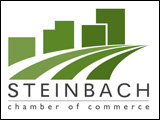Manitoba continues to follow through on its 10-year commitment to renew highway infrastructure with the release of the 2011-12 construction tendering schedule, Premier Greg Selinger announced.
“Manitobans understand that regular repairs prevent major replacement costs later on,” said Selinger. “And for the last 10 years we have invested in what matters to Manitoba families, by upgrading roads and bridges, improving access and valuing safety.”
Since launching the first five-year Highway Renewal Plan in 2007, the province has invested over $1.8 billion and worked on over 5,000 km of road. By the end of next year’s construction season, over $2.3 billion will have been invested, exceeding the goal of $2 billion in the first five years of the plan. The next five-year Highway Renewal Plan will be released next year.
“With today’s early release of the 2011 tendering schedule, we once again meet our commitment to the construction industry, giving them time to plan and make the most of next year’s construction season,” said Selinger. “This reinforces our commitment to renewing Manitoba’s roads and bridges, and assists the construction industry in planning for the future.”
Manitoba’s provincial and municipal governments face similar challenges renewing their aging infrastructure, particularly bridges. The premier also announced today a new Municipal Bridge Renewal Program will be developed in consultation with the Association of Manitoba Municipalities with the intent of having the program up and running for the 2011 construction season.
“We have made significant strides in addressing the renewal of provincial infrastructure and have learned a lot as we have rolled out our Highway Renewal Plan,” said Selinger. “We are now in a position to work with municipalities on a new program that will support them as they develop a long-term approach to the renewal of their local bridges and structures.”
Manitoba is a leader among provinces in terms of funding support provided to municipalities, the premier said. Manitoba provides the broadest funding support of any province by sharing income tax, fuel tax, gaming revenues and traffic fine revenues with municipalities. Over half of all provincial funding is unconditional, the highest per capita level of unconditional support among all provinces, providing flexibility for municipalities to address their infrastructure and service priorities.



